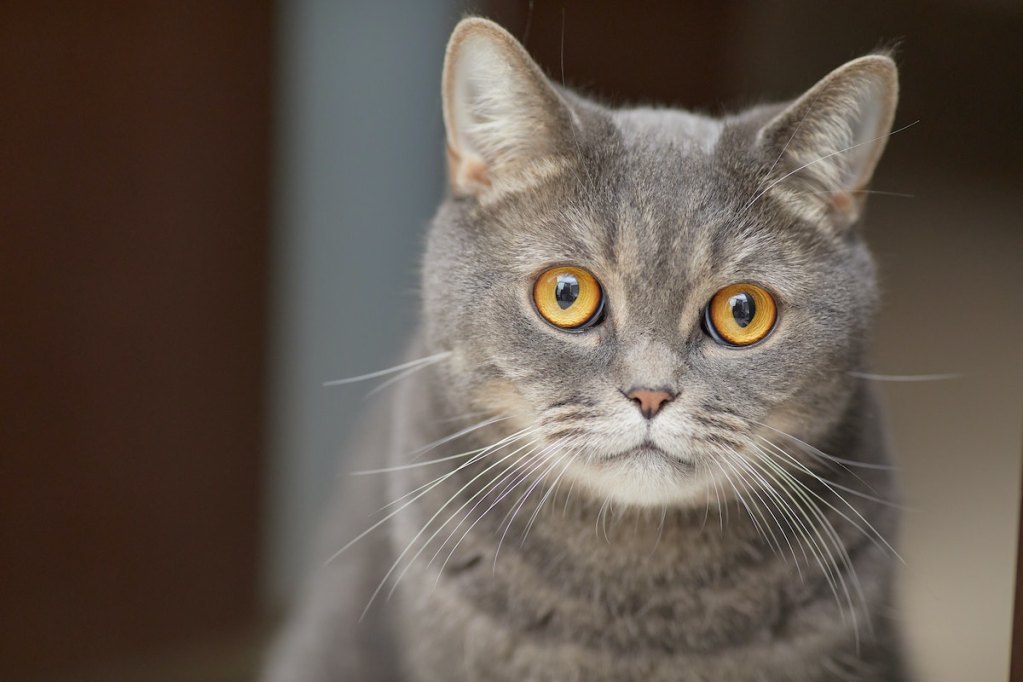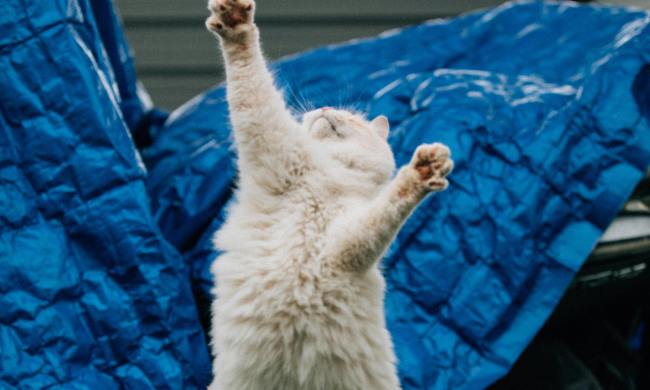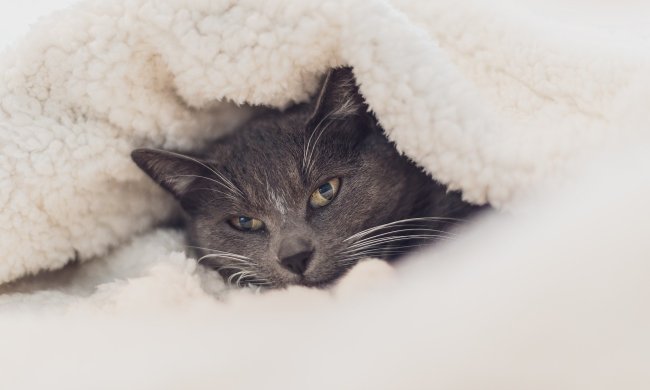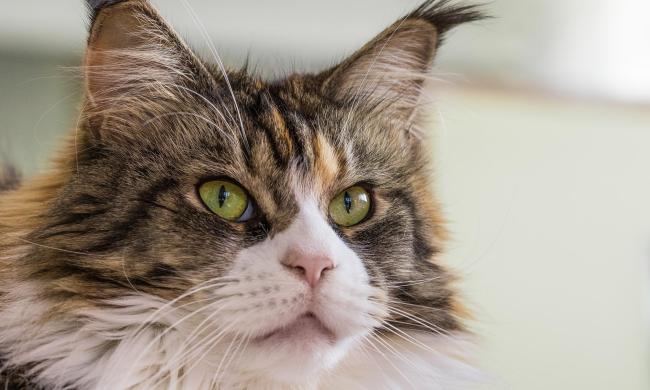Do you feel like your cat is always watching you? It may seem that your cat’s eyes are eternally locked in on you, whether you’re sitting on the couch, in a Zoom meeting, or headed to the bathroom.
We know — those deep green, amber, blue, or multicolored eyes are gorgeous. You can gaze into them for hours when bonding with your kitty. Yet you may prefer it if you had some semblance of privacy. Maybe you feel like your cat is judging you or plotting against you.
It’s understandable to want to know, “Why does my cat stare at me?” The language barrier between humans and felines complicates matters. However, experts point to a few reasons why you can’t seem to escape your cat’s watchful gaze. Here’s what we dug up.
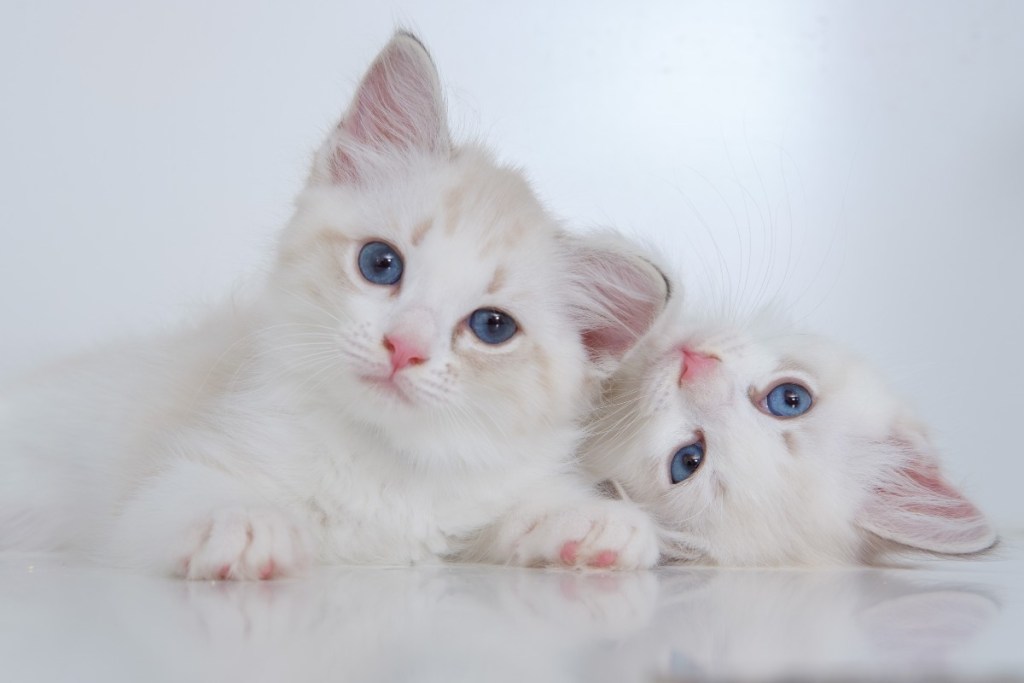
What does it mean when cats stare at you?
Cats stare to send a message. What is your kitty trying to tell you? That answer will depend on their personality and needs at the time.
- Hunger. Did your feline friend eat faster than usual? Perhaps you forgot to feed the tiny sofa lion. Your pet may be staring at you as a way to signal they need their dish filled. You’ll know they’re trying to drive the point home if they look back and forth between you and their bowl.
- Love. Though people may joke about their cat plotting against them, it’s often tongue-in-cheek. When your relaxed cat stares at you and blinks slowly, they’re essentially blowing you a kiss. Reciprocate by saying, “I love you, too.”
- Curiosity. You may find your cat interesting, entertaining, and perhaps a bit baffling. The feeling is mutual. Your cat may be staring at you because they’re trying to figure out why you’re dancing during a mid-day work break or they’re interested in what you’re making for dinner.
- Territorial. Some cats are territorial. They have their favored spaces, like a cozy bed or window perch, and they may want you to keep your distance. If they’re staring at you, it could be them trying to tell you to keep your human hands off their special spot.
- Illness. Your cat may be trying to tell you they’re not feeling too well.

Why does my cat stare at me with half-closed eyes?
Half-closed eyes mean one big thing: relaxation. Take this as explicitly a good sign! If your cat feels safe around you, you’ll find them staring at you while nodding off frequently. Consider it to be a compliment. The only thing you need to know when your cat stares with half-closed eyes is that you might want to tiptoe around so as not to disturb their slumber. Remember, too, that felines have a third eyelid to protect their eyeballs (in addition to the top and bottom ones that we all possess). Your kitty could be closing their extra eyelid but keeping the main ones open.

Why does my cat make eye contact with me?
Sometimes your cat doesn’t simply stare at you. They look you straight in the eye. Eye contact is likely instinctual. Before humans domesticated them, cats had to hunt to survive in the wild, often at night. To target prey, they’d lock their eyes on it.
However, your cat isn’t necessarily hunting you when they make eye contact now. Like a stare, direct eye contact is a form of communication for cats. Sometimes, eye contact is considered a sign of aggression, but it isn’t always. The reasons for direct eye contact between you and your cat are really the same as the stare. They may be hungry, affectionate, curious, territorial, or ill.
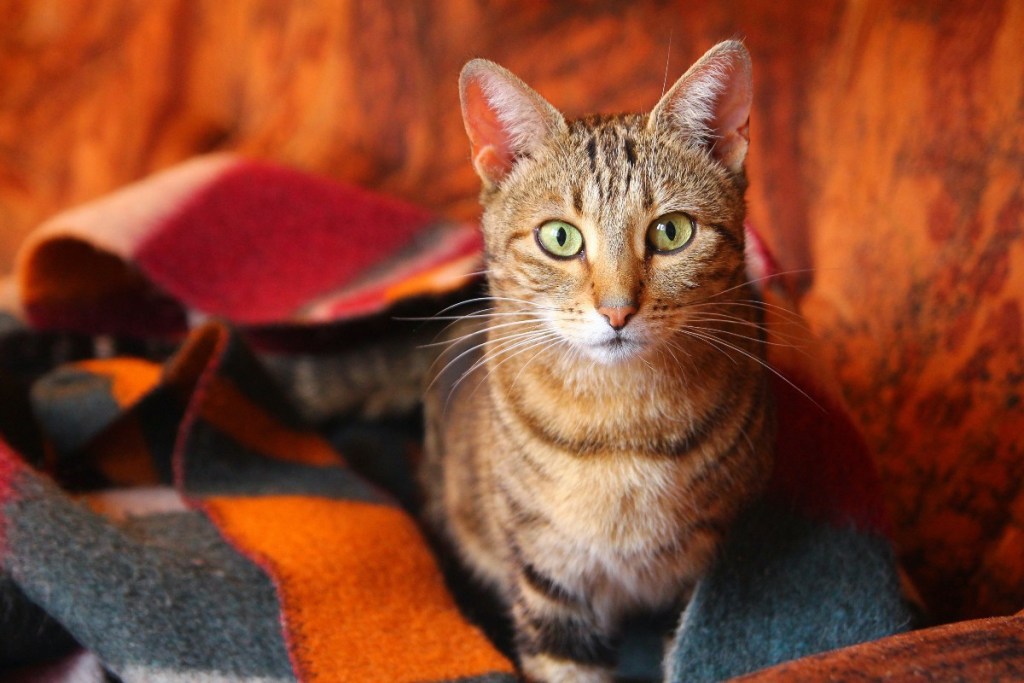
How to figure it out
There are so many different answers to the question, “Why does my cat stare at me?” What’s more, they can be on opposite ends of the spectrum. For example, affection is very different from territorial behaviors. How can you tell what message your cat is trying to send you? You’ll want to look at the rest of their body. Consider this your decoder.
- Happy and relaxed. Your cat is in a good mood if they’re cuddling with you or peering down from their favorite tree and slowly blinking.
- Annoyed. A swishing tail, dilated pupils, and ears turned sideways may be a sign your cat is irritated. Avoid eye contact and focus on redirecting your cat’s attention to something they like, such as by tossing a crinkle ball in their direction.
- Fear. Even confident kitties get scared sometimes. If your cat has dilated pupils and is in a crouched position with their tail between their legs, they may be afraid of something. Hiding is another red flag. Perhaps a car backfired, or you dropped a large object and scared the kitty.
Cats stare at people for many reasons, but it’s ultimately a way to communicate that has evolved over generations. Some people may assume a cat’s hard stare is a form of aggression, but that’s not always the case. Your cat could be telling you they are hungry, happy, or sick. They may be expressing love or irritation. Kitties are curious and territorial and can also communicate these traits through eye contact. You’ll want to look at other cues, such as whether the cat’s tail is tucked between their legs, to decode your pet’s messages. Depending on your pet’s body language, you may wish to engage them in an extra-special snuggle session or give them the space they need.
